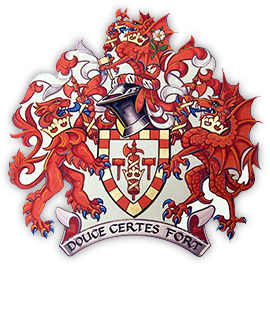Martin Leyshon Chairman of the High Court Enforcement Officers Association attends and speaks at the International Congress of the Hussiers de Justice in Cape Town South Africa.
The congress was entitled the Judicial Officer of the 21st Century every three years, the Union International Hussiers de Justice (UIHJ) organises the International Congress of judicial officers in a different continent. After America (Washington 2006) and Europe (Marseille 2009) it is once again the turn of Africa to host the International Congress of Judicial Officers. The choice turned to South Africa, and here was a chance for the 71 member nations to discover the beautiful city of Cape Town, the Pearl of South Africa as the locals say.
So the UIHJ what sort of organisation is it?
It is an international body of professionals that have a common goal for the exchange and sharing of information and ideas between Judicial Officers from all over the world, but it is more than that. The Guidelines of the European Commission for the Efficiency of Justice (CEPEJ) of the Council of Europe of 17 December 2009 on enforcement laid the foundation of the European Judicial Officer and probably at world level.
The guidelines are in line with the overall recommendations of the UIHJ. They include the entire multi-field Judicial Officer. Like the UIHJ, they promote a Judicial Officer with a high level of training, in charge and responsible for all enforcement actions.
My role as Chairman of the High Court Enforcement Officers Association is to represent England and Wales at this very high level, to ensure that we not only have a voice in Europe but also world wide. The very high level of training for the Judicial Officer in Europe is almost always a degree in law which is why they can undertake all types of enforcement procedures. However, we in the HCEOA have long since recognised that we must lift the bar on education and training which was why we have now introduced levels 4 and 5 of the High Court Enforcement Officers examination in conjunction with our preferred training partner the Institute of Credit Management, with level 5 being set at degree level.
I was extremely impressed that the UIHJ had at least 5 professors and other academics in attendance; the congress was opened by the Mayor of Cape Town and followed with an introductory talk from the Minister of Justice for South Africa.
I was tasked with explaining how we in England and Wales remove goods and chattels in the execution of a high court writ, and how current legislation affects the rights of the debtor as well as the judgment creditor. The only downside was that Professor Robert Emerson who chaired my section made us all wear silly hats that represented the country of origin; therefore I ended up wearing a hat with the union jack on it and speaking before 400 attendees.
In conclusion we in the UK can learn quite a lot from our European partners, however instead of “Transforming Bailiff Action” which in effect is just tweaking bailiff enforcement for the removal of goods and chattels, how about modernising the Judicial Officer for the 21st century throughout England and Wales? As I said we could learn quite a lot, the question is this – Is there a political will to do so?
Martin Leyshon – Chairman of the High Court Enforcement Officers Association





